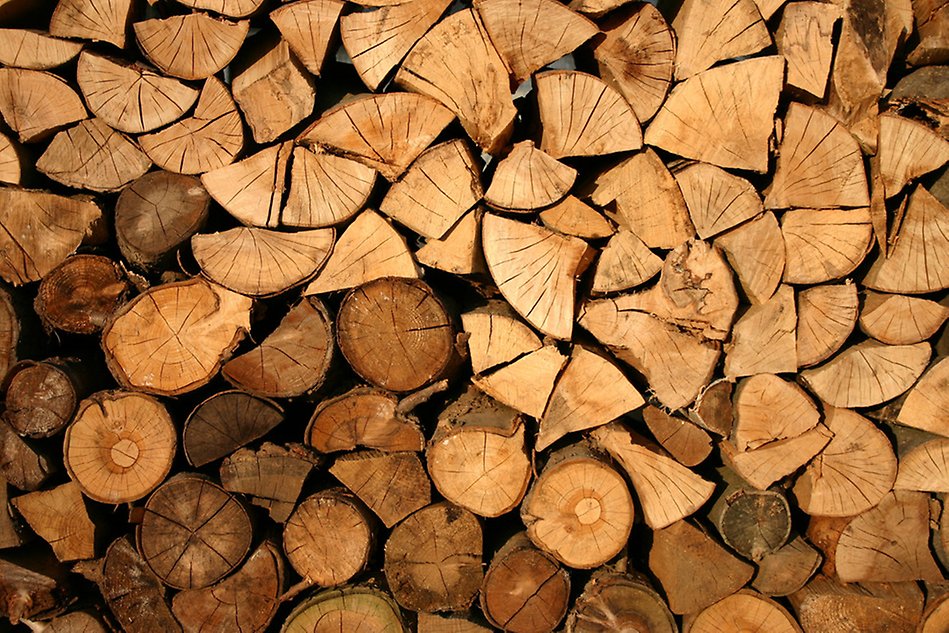BalticBiomass4Value
Bioenergy remains a central element in the renewable energy mix policies in Europe. Nevertheless, the extensive use of biomass for energy raises a number of sustainability risks and economic viability questions.
These concerns include potential harmful impacts of bioenergy expansion on the environment, in particular on biodiversity and ecosystems, air emissions, soil fertility and water. Other major concerns include inefficient uses of biomass for energy, neglecting potentially higher value-added non-energy uses of biomass, and disregard for opportunities to extend circularity in bio-based production.
.jpg)
Project aims
The project aims to enhance capacity of public and private actors within the BSR to produce bioenergy in more environmentally sustainable and economically viable way, by utilizing new biomass sources (chiefly, biological waste) for energy production, as well as possibilities to use bioenergy side streams for high value bio-products. Biomass from different sources (agriculture, food and feed industry, forestry, wood industry, municipal waste and sewage sludge, fishery, algae), its logistics, various biomass conversion technologies and value chains will be mapped to identify best practices of bioenergy generation and the potential of more efficient and sustainable deployment of biomass in the BSR. The additional biomass utilization in energy value chains will be explored, especially opportunities to use side streams for high value bio-products, such as food, feed, fertilisers, chemicals, cosmetics, and other uses. Similar bio-resources, but diverse technologies and business models in the BSR countries create solid background for cooperation.
In the BalticBiomass4Value project, Halmstad University is providing input and knowledge on the Swedish biomass development to establish good practice business models for bioenergy and to enhance the capacity of public authorities.
Efficient and sustainable deployment of biomass
To facilitate efficient and sustainable deployment of biomass that will be the most precious resource in the post-fossil fuel economy, the transnational partnership will develop good practice business models for bioenergy and integrated side bio-products production in the BSR. To enhance the capacity of public authorities, project partners will prepare guidelines on circular bioeconomy development support, and will promote them through experience exchange and training activities across the region. The partnership will also seek to improve knowledge and technology transfer services concerning efficient and sustainable bioenergy production, and to widespread good practice business models in the BSR by developing business consultation scheme and tools.
Public authorities responsible for natural resources, energy security and promotion of industry within bioeconomy sectors, energy agencies, forestry and agricultural advisories, waste management agencies, as well as innovation and business development agencies, clusters and networks, business associations and enterprises will be using outputs of the project. The partnership is also set out to increase awareness among regional development authorities, municipalities, and even local action groups about emerging opportunities in the bioenergy sector.
Halmstad University's role in the project
In the BalticBiomass4Value project, Halmstad University is providing input and knowledge on the Swedish biomass development to establish good practice business models for bioenergy and to enhance the capacity of public authorities. Halmstad University will prepare guidelines on circular bio economy development support and will promote them through experience exchange and training activities across the region together with private and public actors and partners.
About the project
Project period
2019–2021
Project partners
Countries
- Lithuania
- Latvia
- Estonia
- Germany
- Poland
- Denmark
- Sweden
- Norway
- Russia
Public authorities
- Ministry of Energy of the Republic of Lithuania
- Ministry of Rural Affairs of the Republic of Estonia
- Ministry of Agriculture of the Republic of Lithuania
- Agency for Renewable Resources (Germany)
- Norwegian Institute of Bioeconomy Research (established and owned by the Norwegian Ministry of Agriculture and Food)
- State Agency for Agriculture, Environment and Rural Areas of Schleswig-Holstein (Germany)
- Vidzeme Planning Region (Latvia)
- State Committee of the Pskov Region for Economic Development and Investment Policy (Russia)
Innovation and business development clusters/networks
- Lithuanian Biotechnology Association
- Forest Owners Association of Lithuania
- Estonian Chamber of Agriculture and Commerce
- Lower Saxony Network for Renewable Resources and Bioeconomy (Germany)
- Latvian High Added Value and Healthy Food Cluster
- Norwegian Bioenergy Association
Academic and research institutions with specialisation in circular bioeconomy development
- Aleksandras Stulginskis University (Lithuania)
- Latvia University of Life Sciences and Technologies
- Estonian University of Life Sciences
- University of Warmia and Mazury in Olsztyn (Poland)
- Halmstad University (Sweden)
- Norwegian University of Life Sciences
- Danish Technological Institute
Utility companies
- The municipal enterprise of the city of Pskov for wastewater treatment and utilization “Gorvodokanal”
- Fortum Varme Oslo (manufacturer of green district heating and electricity from renewable resources in the Oslo region)
Also, the Nordic Council of Ministers Office in Lithuania is involved as associated organization for connections with the Nordic countries and their institutions.
Participating researchers from Halmstad University
- Henrik Barth, senior lecturer in industrial organisation
- Pia Ulvenblad, senior lecturer in organisation
- Per-Ola Ulvenblad, lecturer in business



